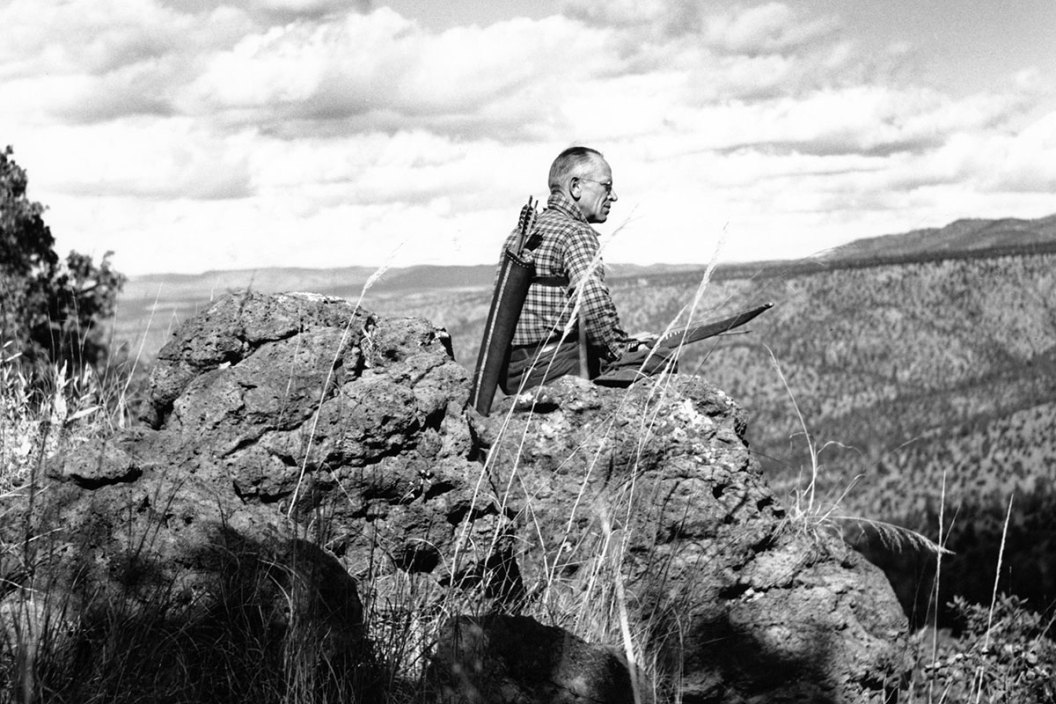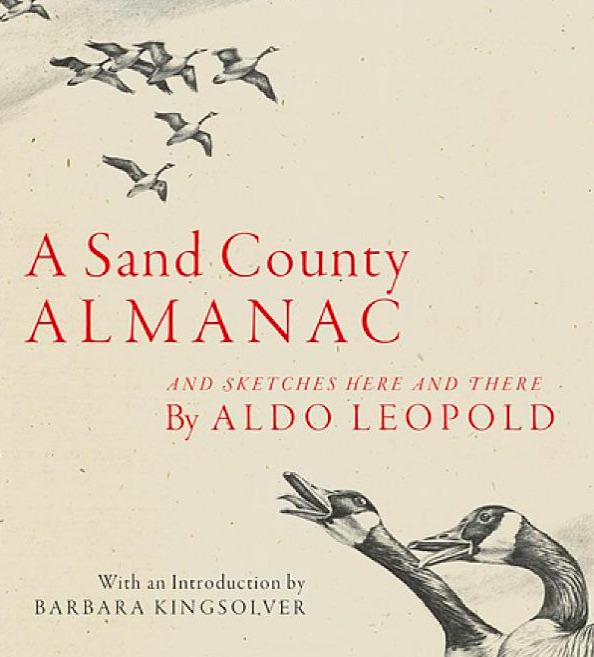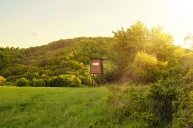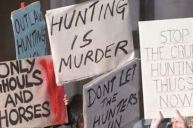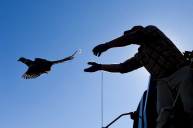It's time to learn all about Aldo Leopold and what he's meant to hunters the world over.
Considered by many to be the father of wildlife ecology and the United States' wilderness system, Aldo Leopold was a bit of everything: a conservationist, forestry manager, philosopher, educator, writer, and certainly an outdoor enthusiast.
Leopold was influential in the development of modern environmental ethics and wilderness conservation. His ethics of nature and wildlife preservation had a profound impact on the environmental movement, with his recognition that ecology of the land has the most meaning towards ethical treatment of the world around us.
Leopold wrote that "We can only be ethical in relation to something we can see, understand, feel, love, or otherwise have faith in." He believed that direct contact with the natural world was crucial in shaping our ability to extend our ethics beyond our own self-interest.
The Sheffield Scientific School and Yale graduate also agreed that, "Viewed in its entirety, [conservation] is the slow and laborious unfolding of a new relationship between people and land."
Born on January 11, 1887, Leopold basically believed that the most serious obstacle impeding the evolution of a land ethic is the fact that the educational and economic system is headed away from, rather than toward, an intense consciousness of land stewardship. He saw industrialization and urbanization as obstacles to proper land and wildlife conservation.
Aldo Leopold is considered the first breakthrough person to lead wildlife conservation practices in America.
Aldo Leopold the Man
Born in Burlington, Iowa, Aldo Leopold developed a strong interest in everything natural and outdoors as a boy and took that fervor with him into early adulthood. After graduating from the Yale University Forest School in 1909, he pursued a career with the newly established U.S. Forest Service in Arizona and New Mexico, and by the age of 24, he had been summarily promoted to the post of supervisor for the Carson National Forest.
Almost immediately, in 1922, he was heavily involved in developing the proposal to manage the Gila National Forest, which then became the Gila Wilderness Area, the country's first official place with that designation, in 1924.
As the Aldo Leopold Foundation said,
"A little more than a year after his death, Leopold's collection of essays, A Sand County Almanac, was published. With more than two million copies sold, it has become one of the most respected books about the environment ever published, and Leopold has come to be regarded by many as the most influential conservation thinker of the 20th century."
Leopold ultimately wound up in Madison, Wisconsin, in 1924, as a result of a job transfer. He then continued to look at ecology and the philosophy of conservation through the eyes of a natural born conservationist. In 1933 he became the proud published author of the first textbook in the field of wildlife management.
https://www.instagram.com/p/5dIO-JvB2y/
Then in 1935, he and his family started their own ecological restoration experiment on an old farm along the Wisconsin River outside of Baraboo. During weekends at what they lovingly called "The Shack," the family planted thousands of pine trees and restored surrounding prairie land. The documentation of the ensuing changes in the plant and animal landscape further transformed and inspired him.
The Land Ethic
As written in A Sand County Almanac, Aldo Leopold set forth an enduring idea that sportsmen and women still try to live by today. The belief goes like this: the "land ethic" is the moral responsibility of humans to the natural world around them.
Leopold's land ethic concept is extremely relevant today, but the belief in it, and especially the conviction, remains difficult.
An excerpt from Leopold's section on "Ethical Sequence" says,
"There is as yet no ethic dealing with man's relation to land and to the animals and plants which grow upon it. The land-relation is still strictly economic, entailing privileges but not obligations."
In other words we seem to only view the land, the outdoor world and nature for what we can gain from it, sometimes in terms of timber or energy. But for sportsmen, it comes in terms of the animals we hunt.
We've come a long way since the days of market shooting, and thankfully for us people like Aldo Leopold were able to open our eyes to the idea that nature, and specifically the animal kingdom, is a finite place.
The land ethic, Leopold maintains, is the missing link in what he calls the ethical sequence: We cannot continue to take without giving back. This leads us to one of his most famous quotes, "A thing is right when it tends to preserve the integrity, stability and beauty of the biotic community. It is wrong when it tends otherwise."
In the end, Leopold recognized that the relationship between human beings, and between people and the land, were complex. It's all part of an evolutionary process that continues on to this day.
A Sand County Almanac
In 1937, Leopold's penchant for writing took a decidedly poetic turn when he began compiling his literary masterstroke. Leopold then spent the next 11 years of his life creating the very essays that inspired outdoorsmen and women to agree to understand how the natural world worked, and labor together to care for all wild things.
In A Sand County Almanac, Aldo Leopold's appeal with the immortal "The Land Ethic" essay directed humans to not only treat each other with respect, but also the soil, plants, water, and animals—everything that Leopold considered "the land."
In the foreword of his book Leopold wrote, "There are some who can live without wild things, and some who cannot. These essays are the delights and dilemmas of one who cannot." It is our view that no one can live without the wild things of the world as it makes us a part of the whole of nature. When one creature disappears, we lose a valuable part of our humanity.
Here is one of the greatest reasons why sportsmen have valued Leopold's work for so many generations. It's so easily relatable to how we go about things each hunting season. If we shoot all of the deer, then do we simply move on to the next animal until that one is gone? There needs to be time and effort to replenish, and a population must reach self-sustaining levels.
Even the timber companies are instrumental in the re-planting of trees, knowing that if they cut them all down, they may as well cut their own arms off as well.
A Sand County Almanac has inspired generations of hunters, enough to create such esteemed groups as Ducks Unlimited, Rocky Mountain Elk Foundation, and the National Wild Turkey Federation just to name a few. There are not many out there that are as tuned into "The Land," as Leopold puts it, quite like the hunting community.
Since it was first published by Oxford University Press in 1949, A Sand County Almanac serves as one of the cornerstones of today's wildlife conservation science, policy, and ethical relationships.
Concluding Thoughts
https://www.instagram.com/p/CJqs8cwF7LM/
When we think of game management, we don't often think of it in terms of "ecological conscience." But thanks to Aldo Leopold, we now have more of an understanding of what it means to be custodians of the natural world. We may not consider ourselves ecologists, but in some sense we all are, and that's a good thing.
Land health and land community are terms that we don't think of when we scout, set up stands, and hunt. In reality, they are more closely related to those things than we typically notice. The way deer live and move is affected by the health of the oak trees in the area, and areas where water is in short supply see less animal activity. These things, which Leopold brought into full view, are influential to our day-to-day and season-to-season activities surrounding hunting.
"Natural resources" is now a mantra used widely in the hunting community, not just a phrase that describes timber or oil exploration. Now those words can refer to the health of the herd and their overall numbers. It's more than a philosophy, but also a representative of the relationship between people and nature.
Leopold and his life and work taught us to be more cognizant of our natural surroundings and its health; we should know what it means to give back and understand the best ways to do it.
Hunters are more than just a passive member of the outdoor community, but an integral part of its ecosystem that have invested value in its well being.
Sadly, Aldo Leopold died of a heart attack while fighting a grass fire back in 1948, but his legacy continues to this day.
For those of us who believe in his teachings and use them to make our world a better place, he may be gone, but he is certainly not forgotten.
Looking for a little more or even hot lunch for your hunting blind? Follow my webpage, or on Facebook and Twitter.
NEXT: WHY I CHOSE NOW TO WRITE A HUNTING BOOK
WATCH
